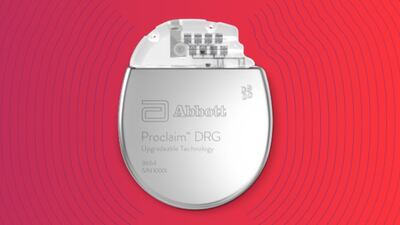Medtronic Inc. (Minneapolis, MN) has received investigational device exemption (IDE) approval from the FDA to conduct a clinical trial of its Infuse bone graft, made with recombinant human bone morphogenetic protein-2 (rhBMP-2), in cervical spinal fusion. The investigational device will consist of Infuse bone graft inside a polyetheretherketone (PEEK) polymer interbody spacer, used with an anterior cervical plate as a method of facilitating spinal fusion. The goal of the clinical trial is to evaluate whether Infuse bone graft is a safe and effective alternative to traditional grafting techniques for cervical spine fusions. Infuse is currently approved for use in an anterior lumbar interbody fusion (ALIF) procedure in combination with a metallic cage implant. The intent of this study is to expand the approved indications to include anterior cervical fusion procedures. As shown in Figure 1, this year, more than 171,000 Americans will undergo spine fusions to treat degenerative changes in the cervical spine, with that figure forecast to reach nearly 250,000 in 2012, with lumbar fusions increasing at the same rate.
Moving to another area of the spine, a new Medtronic-sponsored European study will investigate the short- and long-term benefits of...
Read the full article – start your free trial today!
Join thousands of industry professionals who rely on Medtech Insight for daily insights
- Start your 7-day free trial
- Explore trusted news, analysis, and insights
- Access comprehensive global coverage
- Enjoy instant access – no credit card required
Already a subscriber?







